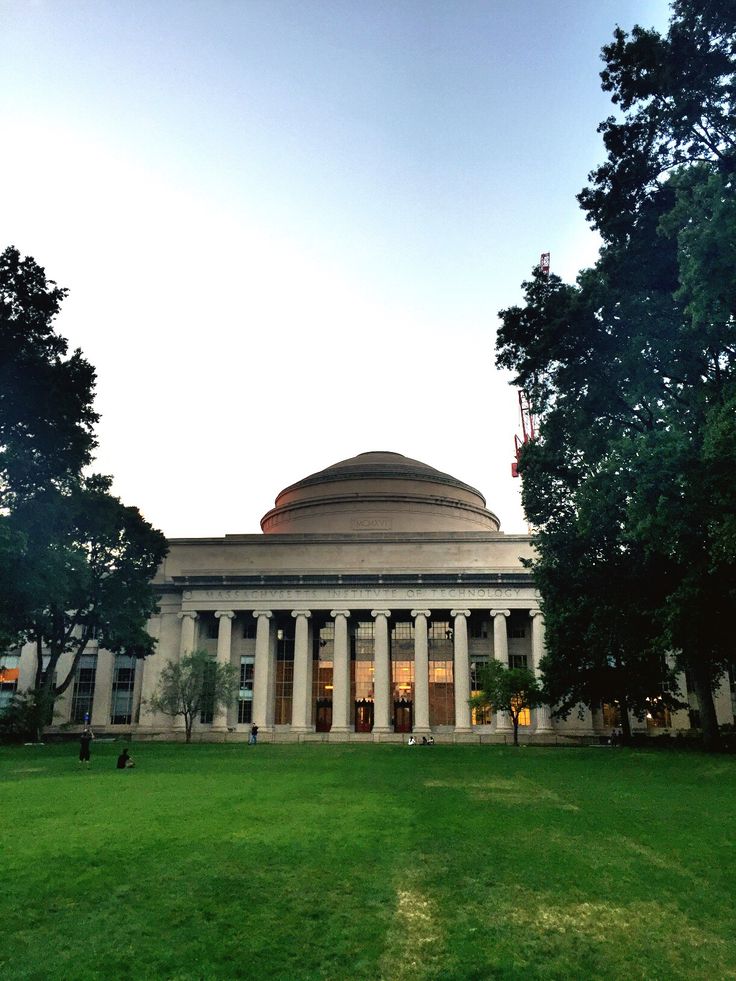Massachusetts Institute of Technology (MIT): The Heart of Innovation and Excellence
The Massachusetts Institute of Technology (MIT) is not just a university; it is a powerhouse of innovation, research, and technological advancements. Founded in 1861, MIT has earned a reputation as one of the leading institutions in the world, shaping the future of science, engineering, economics, and many other fields. MIT’s groundbreaking research and achievements have impacted society in profound ways, making it a hub for forward-thinking individuals striving to change the world.
In this article, we will dive into the history, daily life, significance, and societal impact of MIT. We will also answer common questions and explore the important role the university plays in advancing global progress.
History of Massachusetts Institute of Technology (MIT)
MIT was established in response to the growing need for education in the fields of science and technology during the Industrial Revolution. The vision behind its creation was to prepare students for the increasingly technical and scientific world. Since its founding, MIT has been a leader in the development of new technologies, scientific discovery, and educational approaches.
MIT’s early years were centered on the study of mechanical engineering, and it soon expanded its curriculum to include various fields such as chemistry, electrical engineering, and architecture. Throughout the 20th century, MIT evolved into a global leader in education and research, contributing to the rapid advancements in fields such as computing, space exploration, and sustainable energy.
Today, MIT is home to over 11,000 students, and its reputation for excellence in both teaching and research continues to draw top talent from around the world.
Key Facts About Massachusetts Institute of Technology (MIT)
- Location: MIT is located in Cambridge, Massachusetts, a city known for its academic atmosphere and proximity to other prestigious institutions like Harvard University.
- Reputation: MIT consistently ranks among the top universities in the world, particularly in engineering, computer science, economics, and physics.
- Research and Innovation: MIT is a leader in cutting-edge research, known for its contributions to artificial intelligence, robotics, energy technologies, and space exploration.
- Notable Alumni: MIT’s alumni include numerous Nobel laureates, entrepreneurs, and tech innovators, including the co-founders of companies like Dropbox, Bose, and Akamai.
- Global Impact: MIT’s influence extends far beyond academia, as its graduates and research contribute to the development of new technologies, companies, and industries worldwide.
Daily Life at Massachusetts Institute of Technology (MIT)
Life at MIT is characterized by intellectual rigor, creativity, and a collaborative environment. Students are immersed in a culture of innovation, where they are encouraged to push the boundaries of knowledge and develop solutions to global challenges. Here’s a closer look at what daily life at MIT is like:
- Academics: MIT is known for its rigorous academic curriculum, with students engaging in challenging coursework in their respective fields. Professors at MIT are leaders in their fields, and students are constantly exposed to the latest advancements in technology and research. The workload is demanding, but the rewards are significant in terms of knowledge and opportunities.
- Collaborative Environment: One of the key features of MIT is its collaborative approach to learning. Students work closely with professors and peers, engaging in hands-on projects, group research, and discussions. This emphasis on teamwork fosters creativity and innovation.
- Extracurricular Activities: MIT offers a wide range of extracurricular activities, from student-run clubs to volunteer programs. The university also encourages students to take part in internships and fellowships, which help them gain real-world experience in their fields.
- Campus Life: MIT’s campus is a hub of activity, with students frequently gathering in the university’s many spaces, including the Media Lab, the MIT Museum, and various student lounges. The campus is designed to encourage interaction and idea-sharing, contributing to MIT’s unique environment.
- Innovation and Entrepreneurship: MIT is home to many innovation-driven initiatives, such as the Martin Trust Center for MIT Entrepreneurship and the MIT Innovation Lab. These centers support students who wish to turn their ideas into real-world solutions, often leading to the creation of successful startups.
Significance to Society: Massachusetts Institute of Technology
MIT’s impact on society extends far beyond the classroom. The university’s contributions to science, technology, and industry have had a lasting effect on global progress. Here are some of the key ways MIT influences society:
- Technological Innovation: MIT has been at the forefront of technological advancements for decades. The development of technologies such as the first computer network (precursor to the internet), autonomous vehicles, and advanced AI systems can be traced back to MIT researchers and alumni.
- Entrepreneurship: MIT has a strong culture of entrepreneurship, with many students going on to start their own successful companies. The university’s emphasis on innovation and technology transfer has led to the creation of thousands of companies, many of which have disrupted industries and created new markets.
- Social Responsibility: MIT encourages its students to use their education for the greater good. Many MIT graduates go on to work in fields like public policy, healthcare, and sustainability, applying their knowledge to solve global challenges such as climate change, energy scarcity, and public health crises.
- Global Collaboration: MIT’s international reputation attracts scholars, researchers, and students from all over the world. The university’s collaborations with governments, businesses, and academic institutions help foster global partnerships that tackle pressing issues like poverty, inequality, and environmental protection.
FAQs About Massachusetts Institute of Technology (MIT)
- What are the admission requirements for MIT? MIT has a highly selective admissions process. Applicants must demonstrate excellence in academics, standardized test scores (such as the SAT or ACT), extracurricular activities, and personal essays. Interviews are also part of the admissions process.
- How difficult is it to get into MIT? Admission to MIT is extremely competitive. The acceptance rate is low, with only around 6% of applicants gaining admission. Applicants need to showcase exceptional academic achievements and demonstrate a passion for their chosen field of study.
- What programs does MIT offer? MIT offers a wide range of programs in science, engineering, technology, economics, architecture, and more. It is particularly renowned for its engineering, computer science, and business programs.
- What is MIT’s culture like? MIT has a collaborative and intellectually stimulating culture. Students are encouraged to think critically, solve problems creatively, and work together on projects. The university fosters a community of innovators who aim to make a positive impact on the world.
- Does MIT have a strong alumni network? Yes, MIT’s alumni network is vast and influential. Graduates of MIT have gone on to become leaders in various industries, and the university’s alumni often collaborate to support current students and each other in business ventures and research.
Conclusion: Lasting Legacy in Education and Innovation; Massachusetts Institute of Technology
The Massachusetts Institute of Technology continues to be a beacon of excellence in education and research. With its focus on science, technology, and entrepreneurship, MIT has had a profound impact on global society, fostering groundbreaking innovations and creating leaders who shape industries and communities around the world.
MIT’s unique approach to education—emphasizing hands-on learning, collaboration, and entrepreneurship—has set the standard for universities worldwide. Its contributions to technological advancement and societal progress make it a symbol of human ingenuity and the potential to address the world’s greatest challenges.
As MIT continues to evolve and innovate, its impact on the world will only grow, making it one of the most important institutions in shaping the future of education and technology.
Final Thought: Massachusetts Institute of Technology
Whether you’re an aspiring engineer, scientist, or entrepreneur, the Massachusetts Institute of Technology represents the pinnacle of academic achievement and real-world impact, offering a world-class education that prepares students for a successful and meaningful career.










